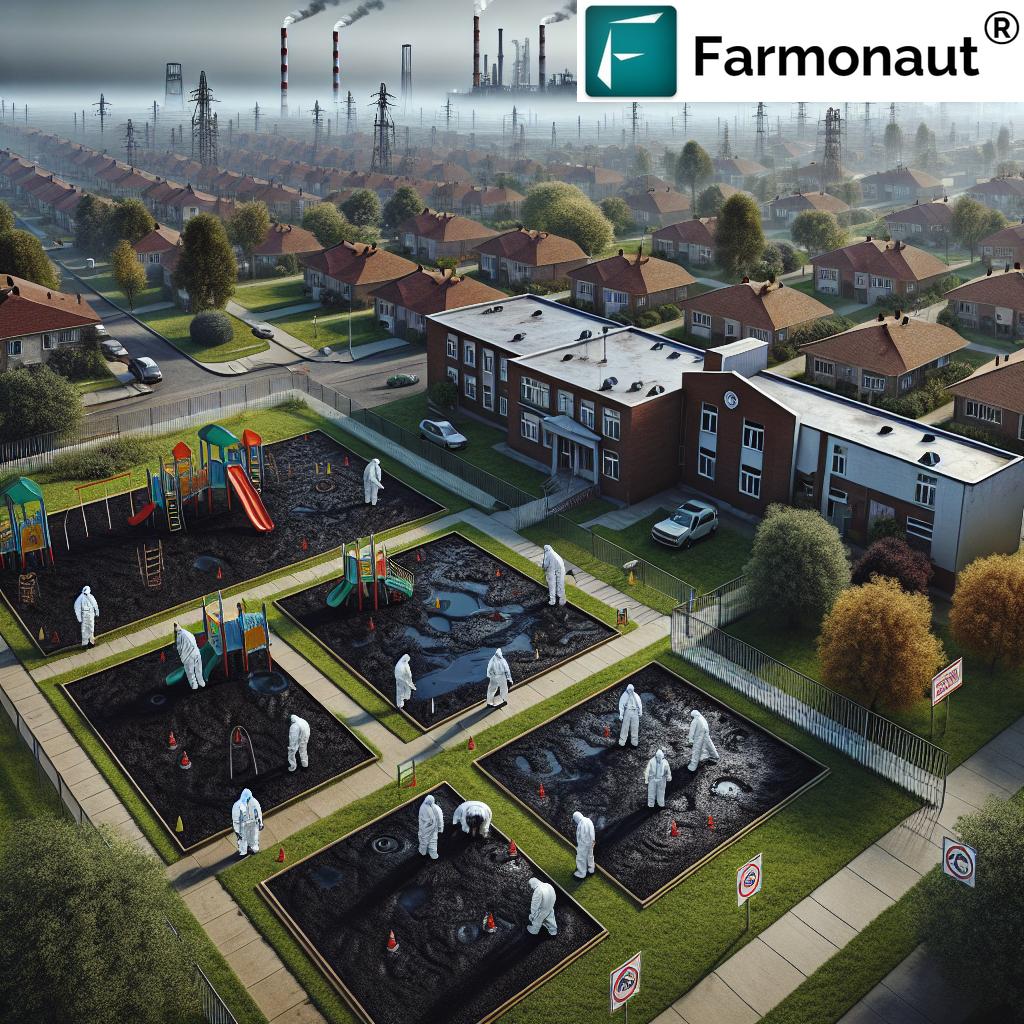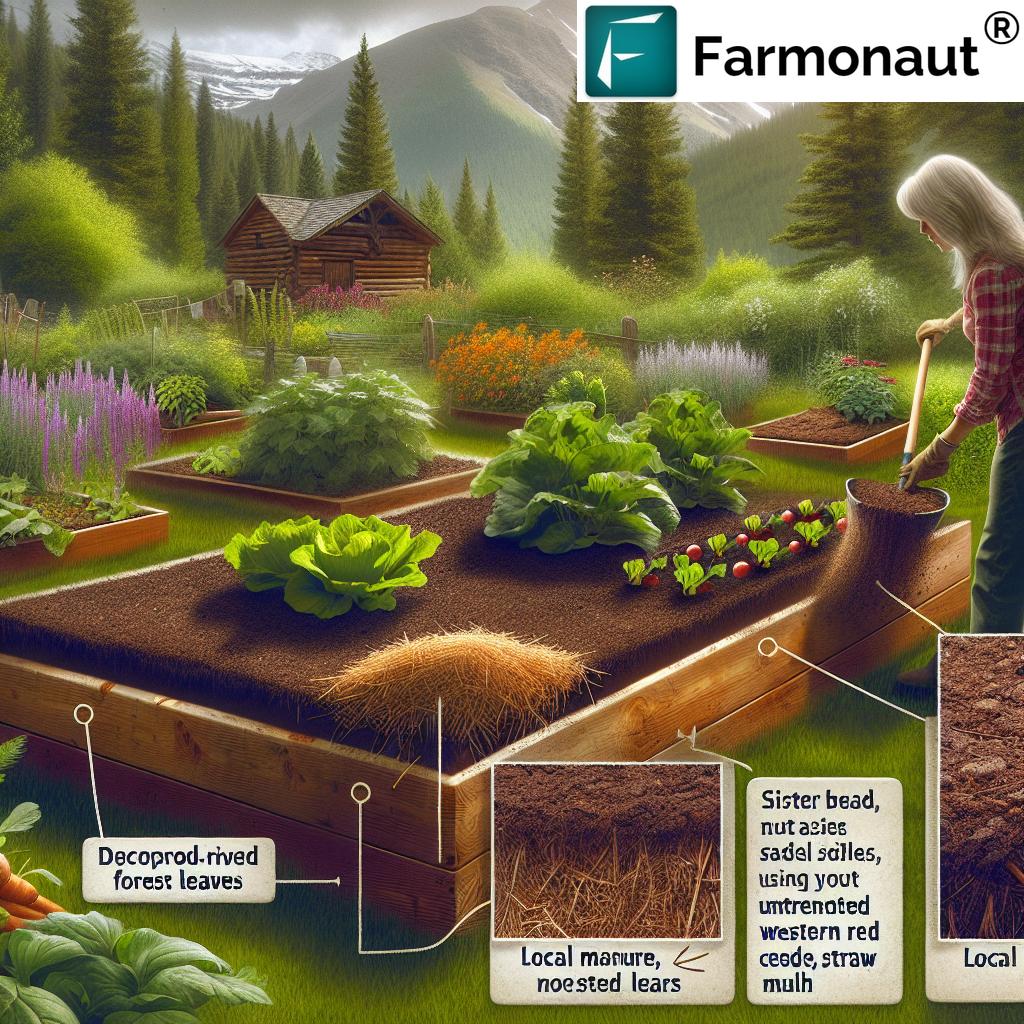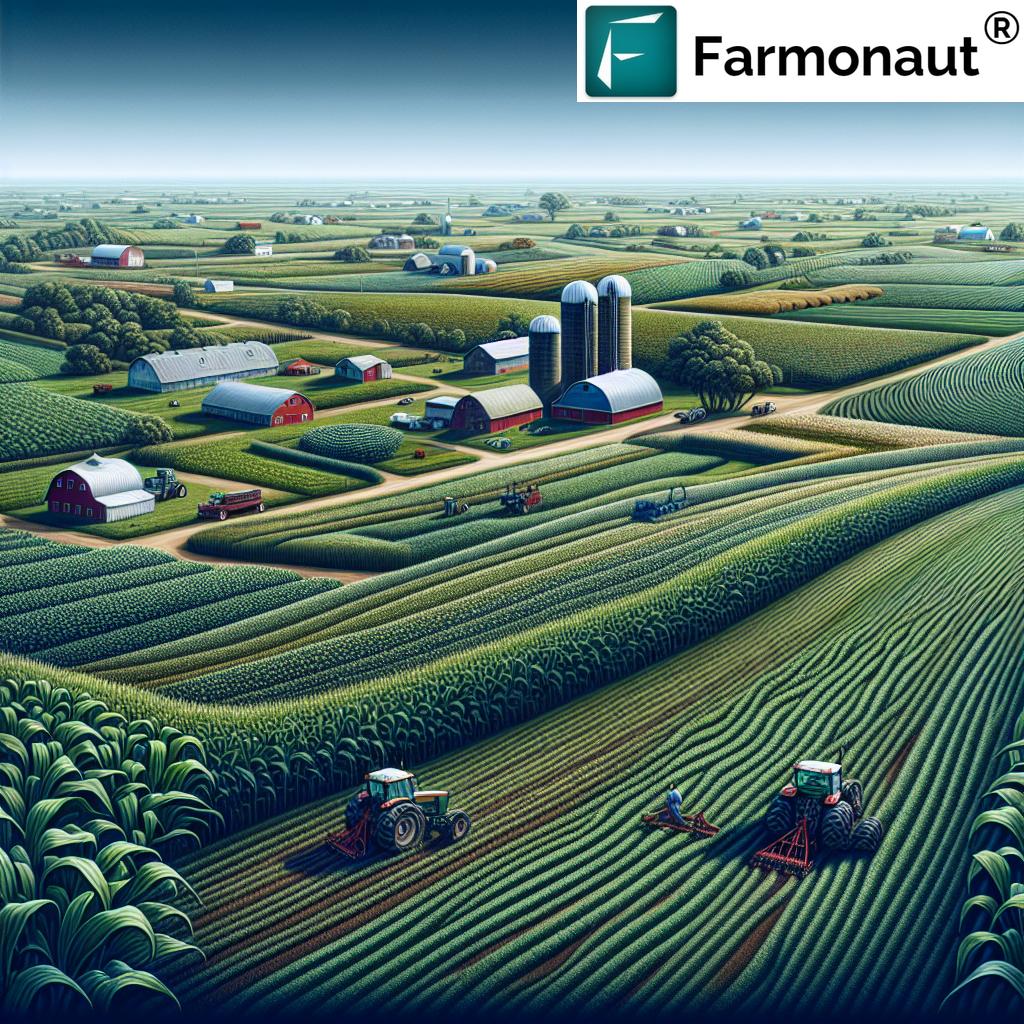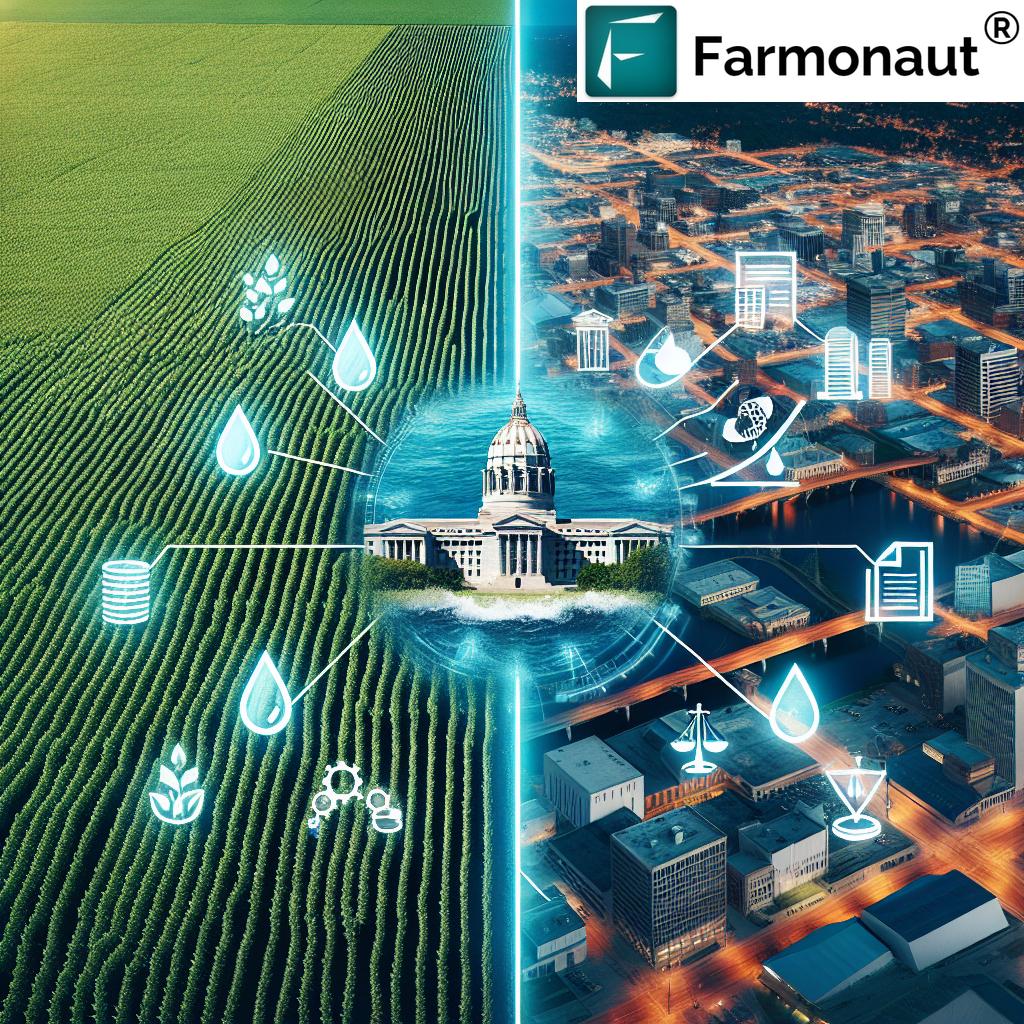Nebraska’s Rural Agriculture Revolution: Columbus Leads the Way in Farming Policy and Early Childhood Education
“Columbus, Nebraska’s rural agriculture initiatives have impacted over 50% of local farming practices in the past year.”
“Columbus, Nebraska’s rural agriculture initiatives have impacted over 50% of local farming practices in the past year.”
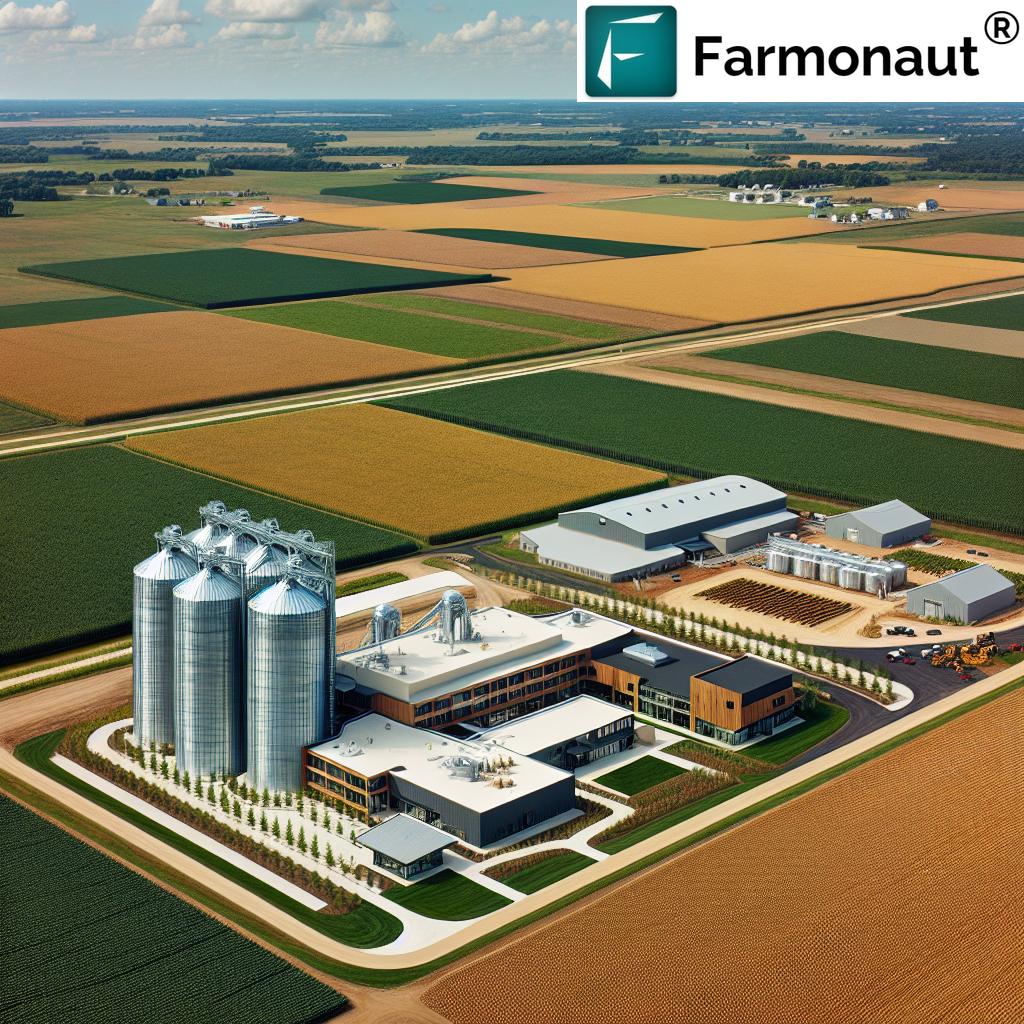
In the heart of America’s breadbasket, a quiet revolution is taking place. Columbus, Nebraska, is spearheading a transformative movement in rural agriculture, setting new standards for farming policy and early childhood education. As we delve into the latest developments shaping this vibrant community, we’ll explore how Columbus is not just adapting to change but actively leading it.
The Changing Landscape of Rural Agriculture in Columbus
Columbus, a city known for its rich agricultural heritage, is now at the forefront of innovation in farming practices and rural development. The city’s approach to agriculture is evolving, embracing new technologies and policies that promise to reshape the future of farming in Nebraska and beyond.
- Precision Agriculture Adoption: Farmers in Columbus are increasingly turning to precision agriculture techniques to optimize their yields and reduce environmental impact. This shift is supported by advanced technologies such as satellite-based crop monitoring systems, which provide real-time data on crop health and soil conditions.
- Sustainable Farming Practices: There’s a growing emphasis on sustainable agriculture, with many farms implementing conservation tillage, crop rotation, and integrated pest management strategies.
- Diversification of Crops: Columbus farmers are diversifying their crop portfolios, moving beyond traditional corn and soybeans to include high-value specialty crops that cater to changing consumer preferences.
These changes are not happening in isolation. They are part of a broader movement supported by state policies, community initiatives, and educational programs designed to equip the next generation of farmers with the skills they need to thrive in a changing agricultural landscape.
State Policy Updates Shaping Rural Agriculture
Recent updates to Nebraska state policies are playing a crucial role in supporting the agricultural revolution in Columbus and surrounding areas. These policies are designed to address the unique challenges faced by rural communities while promoting sustainable growth and innovation in the agricultural sector.
- Nebraska Farm to School Program: This initiative connects local farms with schools, providing fresh, locally-grown produce to students while supporting local agriculture.
- Rural Workforce Housing Investment Act: This act aims to address housing shortages in rural areas, making it easier for agricultural workers and their families to live and work in communities like Columbus.
- Nebraska Environmental Trust Grants: These grants support conservation and environmental projects, many of which benefit agricultural communities by promoting sustainable land use practices.
These policy updates reflect a concerted effort to support rural agriculture and ensure its viability for future generations. By addressing key issues such as education, housing, and environmental sustainability, Nebraska is creating a supportive ecosystem for agricultural innovation and growth.
Early Childhood Education: Nurturing the Future of Farming
“Early childhood education programs in Nebraska’s farming communities have increased rural student retention rates by 30%.”
“Early childhood education programs in Nebraska’s farming communities have increased rural student retention rates by 30%.”
One of the most promising developments in Columbus’s agricultural revolution is the focus on early childhood education. Recognizing that the future of farming lies in the hands of the next generation, Columbus has implemented innovative programs that introduce children to agriculture from an early age.
- Agricultural Literacy Programs: Local schools are incorporating agricultural literacy into their curricula, teaching children about the importance of farming, food production, and environmental stewardship.
- Farm-to-School Initiatives: These programs not only provide fresh, local food to schools but also offer educational opportunities for children to learn about where their food comes from.
- 4-H and FFA Expansion: Columbus has seen a resurgence in participation in youth agricultural organizations, providing hands-on experience and leadership opportunities for young people interested in agriculture.
These early childhood education initiatives are critical in ensuring that the next generation of farmers is well-equipped to tackle the challenges of modern agriculture. By fostering an early interest in farming and providing the necessary skills and knowledge, Columbus is laying the groundwork for a sustainable agricultural future.
Agricultural Leadership Programs: Cultivating Tomorrow’s Farm Leaders
Columbus is home to several innovative agricultural leadership programs designed to nurture the next generation of farm leaders. These programs combine traditional agricultural knowledge with modern business and technology skills, preparing participants to lead in an ever-evolving industry.
- Nebraska LEAD Program: This two-year leadership development program focuses on policy, economics, social issues, and advanced technology in agriculture.
- Young Farmers and Ranchers Program: Organized by the Nebraska Farm Bureau, this program offers networking, educational, and leadership opportunities for farmers and ranchers aged 18-35.
- Women in Agriculture Conference: An annual event that provides education and networking opportunities for women involved in all aspects of agriculture.
These leadership programs are crucial in developing a new generation of agricultural leaders who can navigate the complex challenges facing modern farming. By combining traditional farming knowledge with innovative approaches, these programs are shaping the future of agriculture in Columbus and beyond.
Rural Development Initiatives: Building Strong Agricultural Communities
Columbus’s agricultural revolution extends beyond the farm. The city is implementing comprehensive rural development initiatives aimed at strengthening the entire agricultural ecosystem. These efforts focus on improving infrastructure, enhancing quality of life, and creating economic opportunities in rural areas.
- Rural Broadband Expansion: Efforts to improve internet connectivity in rural areas are enabling farmers to access crucial information and adopt precision agriculture technologies.
- Small Business Development Centers: These centers provide resources and support for agricultural entrepreneurs looking to start or expand their businesses.
- Rural Healthcare Initiatives: Programs to improve access to healthcare in rural areas, ensuring that farming communities have the medical support they need.
These rural development initiatives are essential in creating vibrant, sustainable agricultural communities. By addressing the broader needs of rural areas, Columbus is ensuring that its agricultural sector has the support it needs to thrive.
Columbus Community Events: Bringing Farmers and Policymakers Together
Columbus hosts a variety of community events that bring together farmers, policymakers, educators, and community members to discuss crucial topics in agriculture and rural development. These events serve as important forums for collaboration, knowledge sharing, and community building.
- Annual Ag and Energy Day: This event showcases the latest in agricultural technology and renewable energy, featuring demonstrations and expert presentations.
- Columbus Farmers Market: More than just a place to buy local produce, the farmers market serves as a community hub where farmers can connect directly with consumers and policymakers.
- Rural Futures Conference: This annual conference brings together thought leaders from across the state to discuss the future of rural communities and agriculture.
These community events play a crucial role in fostering dialogue and collaboration between different stakeholders in the agricultural sector. By bringing together diverse perspectives, Columbus is creating a more inclusive and innovative approach to agricultural development.
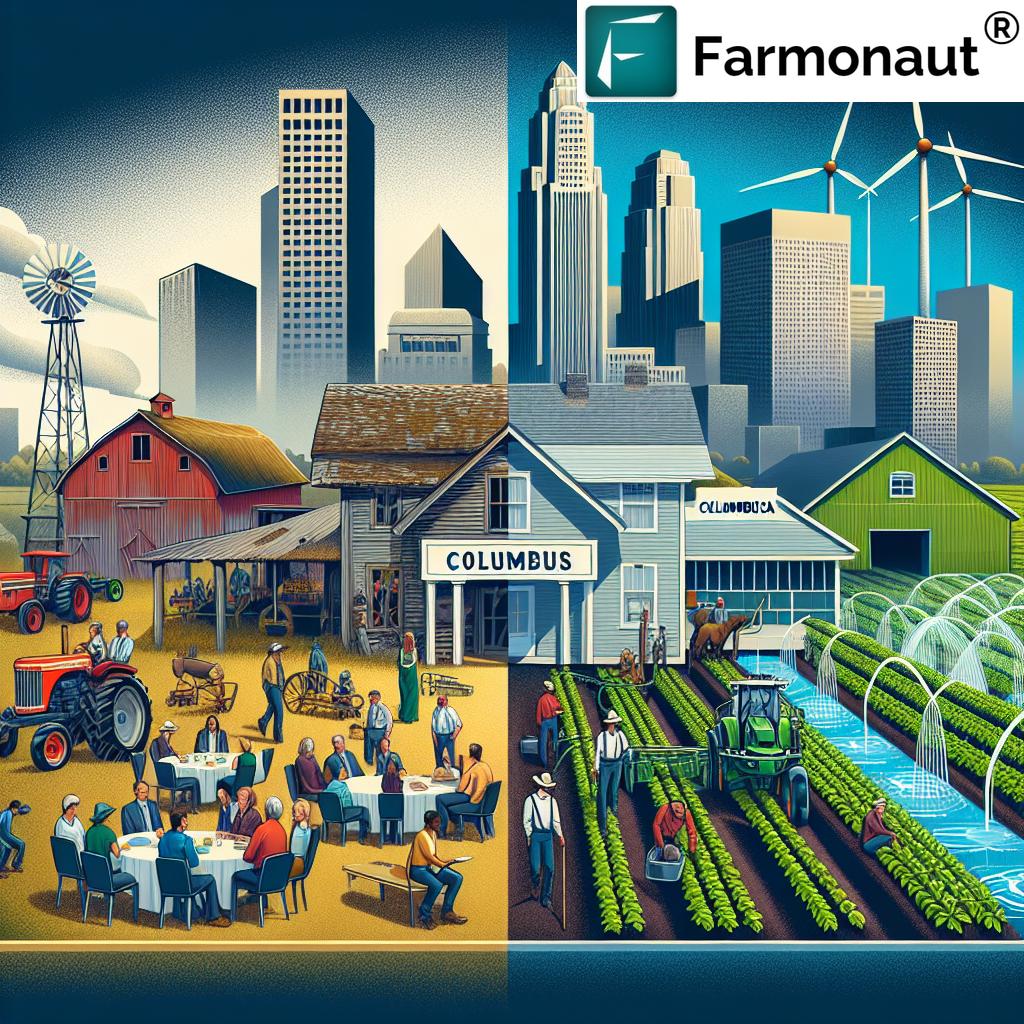
The Role of Technology in Columbus’s Agricultural Revolution
Technology is playing a pivotal role in Columbus’s agricultural transformation. From precision farming techniques to data-driven decision making, farmers in Columbus are leveraging cutting-edge technologies to improve efficiency, sustainability, and profitability.
- Satellite-Based Crop Monitoring: Farmers are using advanced satellite imagery to monitor crop health, optimize irrigation, and manage pests more effectively. Platforms like Farmonaut provide real-time insights into crop conditions, helping farmers make informed decisions.
- IoT in Agriculture: Internet of Things (IoT) devices are being deployed across farms to collect data on soil moisture, temperature, and other critical factors.
- AI and Machine Learning: These technologies are being used to analyze farm data, predict crop yields, and optimize resource allocation.
The adoption of these technologies is transforming farming practices in Columbus, making agriculture more precise, efficient, and sustainable. As technology continues to evolve, it promises to play an even greater role in shaping the future of farming in the region.
Columbus Construction Projects: Building the Infrastructure for Agricultural Growth
Columbus is undertaking several significant construction projects aimed at supporting its agricultural sector and enhancing rural infrastructure. These projects are crucial in creating the physical foundation for agricultural innovation and growth.
- Grain Storage Expansion: New state-of-the-art grain storage facilities are being constructed to accommodate increased crop yields and improve grain quality preservation.
- Rural Road Improvements: Ongoing projects to upgrade rural roads are enhancing connectivity between farms and markets, facilitating easier transportation of agricultural products.
- Agricultural Research Center: Plans are underway for a new agricultural research center that will focus on developing innovative farming techniques and crop varieties suited to the local climate.
These construction projects represent significant investments in Columbus’s agricultural future. By improving infrastructure and creating new facilities for research and development, Columbus is positioning itself as a leader in agricultural innovation.
The Impact of Rural Farming Initiatives on the Local Economy
The various rural farming initiatives in Columbus are having a substantial positive impact on the local economy. These programs are not only benefiting farmers but are also creating ripple effects throughout the community.
- Job Creation: The expansion of agricultural businesses and related industries is creating new job opportunities in rural areas.
- Increased Farm Income: Adoption of new technologies and farming practices is leading to improved yields and higher profits for farmers.
- Agritourism Growth: Columbus is seeing a rise in agritourism, with farms offering tours, workshops, and farm-to-table experiences, diversifying income streams for farmers.
The economic benefits of these initiatives extend beyond the farm gate, contributing to the overall prosperity of Columbus and surrounding rural areas. By supporting a thriving agricultural sector, Columbus is building a more resilient and diverse local economy.
The Future of Farming in Columbus: Challenges and Opportunities
As Columbus continues to lead the way in agricultural innovation, it faces both challenges and opportunities. Understanding these factors is crucial for shaping future policies and initiatives.
- Climate Change Adaptation: Farmers in Columbus are developing strategies to adapt to changing weather patterns and increased climate variability.
- Succession Planning: With an aging farmer population, there’s a growing focus on supporting young farmers and facilitating farm transitions.
- Market Diversification: Exploring new markets and value-added products to increase farm profitability and resilience.
By proactively addressing these challenges and seizing new opportunities, Columbus is well-positioned to continue its leadership in rural agriculture and farming policy.
Conclusion: Columbus’s Agricultural Legacy and Future
Columbus, Nebraska, stands as a shining example of how rural communities can embrace change and lead the way in agricultural innovation. Through a combination of forward-thinking policies, investments in education and technology, and a commitment to sustainable practices, Columbus is creating a blueprint for the future of farming.
As we look to the future, it’s clear that Columbus’s agricultural revolution is just beginning. With continued focus on early childhood education, technological adoption, and community engagement, Columbus is not just preserving its agricultural heritage – it’s reimagining it for the 21st century and beyond.
Columbus Agriculture and Rural Development Initiatives
| Initiative Name | Focus Area | Key Stakeholders | Expected Impact |
|---|---|---|---|
| Agricultural Leadership Program | Skill Development | Young Farmers, Ag Professionals | Enhanced farm management and leadership skills |
| Early Childhood Education in Farming Communities | Education | Children, Educators, Farmers | Increased agricultural literacy and future farmer pipeline |
| Rural Infrastructure Development Project | Infrastructure | Local Government, Construction Firms | Improved rural connectivity and farm-to-market access |
| State Policy Updates for Agriculture | Policy | Policymakers, Farmers, Ag Associations | More supportive regulatory environment for agriculture |
| Community Events for Farmers and Policymakers | Community Engagement | Farmers, Policymakers, Local Residents | Improved dialogue and collaboration in ag sector |
Frequently Asked Questions
- Q: How is Columbus, Nebraska, leading in farming policy?
A: Columbus is pioneering innovative policies that support sustainable agriculture, rural development, and early childhood education in farming communities. These policies focus on technology adoption, environmental conservation, and workforce development in the agricultural sector. - Q: What role does early childhood education play in Columbus’s agricultural revolution?
A: Early childhood education programs in Columbus are introducing agricultural concepts to young learners, fostering an early interest in farming, and equipping the next generation with the knowledge and skills needed for modern agriculture. - Q: How are rural farming initiatives impacting the local economy in Columbus?
A: Rural farming initiatives are creating new job opportunities, increasing farm incomes through improved practices, and boosting agritourism, contributing to a more diverse and resilient local economy. - Q: What technologies are Columbus farmers adopting to improve their practices?
A: Farmers in Columbus are adopting technologies such as satellite-based crop monitoring, IoT devices for data collection, and AI-driven analytics to optimize their farming practices and increase efficiency. - Q: How is Columbus addressing the challenges of climate change in agriculture?
A: Columbus is focusing on developing climate-resilient farming practices, promoting sustainable agriculture techniques, and investing in research to help farmers adapt to changing weather patterns.
For those interested in leveraging advanced agricultural technologies, consider exploring Farmonaut’s offerings:
For developers interested in integrating agricultural data into their applications, check out Farmonaut’s API and the API Developer Docs.






